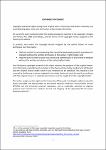AN INVESTIGATION OF TWICE EXCEPTIONALITY (2E) IN THE UK CONTEXT: THE PARADOXICAL COMBINATION OF EXCEPTIONALITIES
| dc.contributor.supervisor | Done, Elizabeth | |
| dc.contributor.author | Demir, Yunus Emre | |
| dc.contributor.other | Faculty of Arts and Humanities | en_US |
| dc.date.accessioned | 2024-04-12T11:02:20Z | |
| dc.date.available | 2024-04-12T11:02:20Z | |
| dc.date.issued | 2024 | |
| dc.identifier | 10702574 | en_US |
| dc.identifier.uri | https://pearl.plymouth.ac.uk/handle/10026.1/22272 | |
| dc.description.abstract |
Twice-exceptionality (2E) refers to individuals who possess both exceptional intellectual abilities and disabilities. This qualitative exploratory study primarily investigated the experiences of 2E learners and teachers who have previously taught, or currently teach, students with twice-exceptionality. The study examined such lived experiences with reference to philosophical, sociological and socio-cultural theoretical concepts. A combination of interviews and self-administered questionnaires was utilised for data collection following a protracted recruitment process in COVID-19 pandemic and post-pandemic conditions which, it was assumed, had limited consent to participate to seven teachers and five students based primarily in Plymouth. An indicative content analysis of the students` data and reflexive thematic analysis of teachers` data illustrated the importance of acknowledging of paradoxical combinations of ability and disability with additional conditions (e.g., eating disorders and depression). Socialisation difficulties in 2E students with autism and organisational skill problems in high potential students with ADHD were identified. Some teachers observed different characteristics in 2E students such as overconfidence and creative writing skills. However, it was also found that participating teachers were unaware of aspects of 2E and tended to avoid classifying their students as 2E or gifted. Thus, the generation of data on the lack of awareness of 2E provided an additional benefit and contribution to knowledge. The study emphasised the importance of tailored support and inclusive practices, intending to ensure that the voices of 2E students and teachers are heard and to determine their needs. With reference to empirical data and the existing literature, it will contribute the recognition and broader understanding of twice exceptionality, offering valuable insights for educational practitioners, policymakers, and researchers. Further research into this complex intersection of issues in diversity, inclusion, and twice-exceptionality is encouraged to enhance inclusivity and educational systems for 2E individuals. | en_US |
| dc.language.iso | en | |
| dc.publisher | University of Plymouth | |
| dc.rights | Attribution-NonCommercial-NoDerivs 3.0 United States | * |
| dc.rights.uri | http://creativecommons.org/licenses/by-nc-nd/3.0/us/ | * |
| dc.subject | twice-exceptionality, gifted students with paradoxical exceptionalities, special education | en_US |
| dc.subject.classification | PhD | en_US |
| dc.title | AN INVESTIGATION OF TWICE EXCEPTIONALITY (2E) IN THE UK CONTEXT: THE PARADOXICAL COMBINATION OF EXCEPTIONALITIES | en_US |
| dc.type | Thesis | |
| plymouth.version | publishable | en_US |
| dc.identifier.doi | http://dx.doi.org/10.24382/5172 | |
| dc.rights.embargoperiod | No embargo | en_US |
| dc.type.qualification | Doctorate | en_US |
| rioxxterms.version | NA |
Files in this item
This item appears in the following Collection(s)
-
01 Research Theses Main Collection
Research Theses Main



